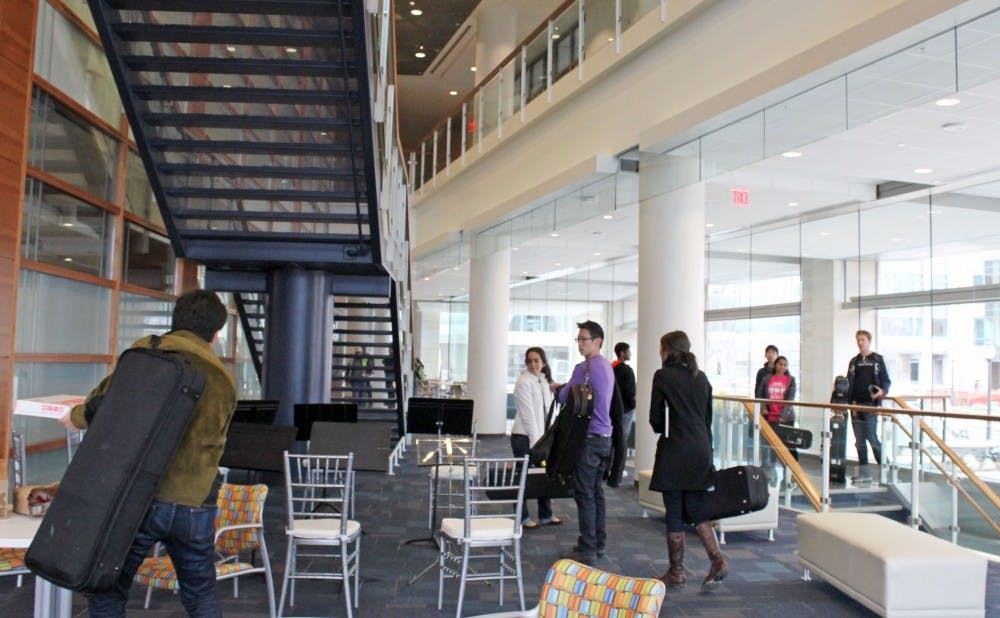Every week The Chronicle collects pre-medical students’ most pressing questions and poses them to professionals in the field of medicine. This week, The Chronicle’s Juanita Hazel emailed Dr. Brenda Armstrong, associate dean of medical education and director of admissions for the School of Medicine, to find out what matters from an administrative perspective.
TC: Students have a lot of questions concerning acceptance to medical school. What’s your most honest advice?
BA: The process of preparing for medical school involves pushing your intellectual and academic limits, taking on subject matter that is challenging, on the cutting edge, and looking across disciplines—biology, chemistry, mathematics, physical science, social science, and psychology in increasingly complex course work.
TC: When choosing a medical school class, what is the most important factor you look for throughout the group?
BA: There is no single “important factor.” Rigorous academic training without complementary life experience creating significant humanism (and vice-versa) is not acceptable. We look for students who are “capable of brilliant academic work,” who are inquisitive, creative and productive, and have demonstrated this in their undergraduate academic and extracurricular training. Equally important is the development as individuals who are capable of and have already demonstrated leadership, self-understanding, maturity, reliability and resilience, the capacity for self-improvement, persons who are ethically and morally grounded, compassionate, have demonstrated the ability not to be judgmental on the basis of class, race, gender, ethnicity, religious affiliation, socioeconomic status, and who possess extraordinary oral and written communication skills, to name a few.
TC: Why have students said that they want to attend Duke above other medical school programs?
BA: Duke’s innovative curriculum has been ahead of the curve in its understanding of the pivotal relationship of research to the discovery of new science and practice when compared to its peer institutions. The early introduction of clinical interactions with patients in the first year of medical school and the integration of teaching involving patients alongside the introduction to biomedical science in the first years has been a defining feature of Duke’s curricular philosophy, going back more than 40 years. As the pace of new discovery in biomedical science has accelerated, as our understanding of the causes of disparities in health and the multiple factors in producing them has unfolded, the need for training physicians who are grounded in a research environment has made DukeMed a leader in medical education. The requirement of a year of research as part of the curriculum, either clinical or basic science, and/or through the opportunity to train in complementary areas, MPH, MPP, MBA, JD, Masters in global health, etc., have made DukeMed an increasingly sought-after place to study medicine.
TC: Do you have any good stories/experiences in dealing with applicants that have carried on through your time at Duke?
BA: There are hundreds of stories that describe the “journey to medicine.” We have been fortunate to ask the “right” questions that would elicit these “stories” of the “journey to medicine,” in many cases defined by significant “distance traveled” in overcoming academic and personal obstacles in the pursuit of medicine, of the brilliance that our students show us as they are willing to share life-defining experiences on the way to medical school. The key for medical school admissions is to ask “the right questions,” to allow both the capability of academic brilliance and the extraordinary personal competences that life experience teaches to be revealed. Whether it is in the academic and demographic inventory of the AMCAS application, coupled with the inquiry of a tough secondary application, or the detailed letters of recommendation that come forward through the faculty, Duke Health Professions Advising Office and others who provide first hand documentation of the non-academic qualities of the students and the “who they are” during the Multiple Mini Interviews designed to bring out those lessons learned outside of the classroom, DukeMed has been fortunate to receive applications from students preparing for a career in medicine that make us hopeful for our future.
Get The Chronicle straight to your inbox
Signup for our weekly newsletter. Cancel at any time.

